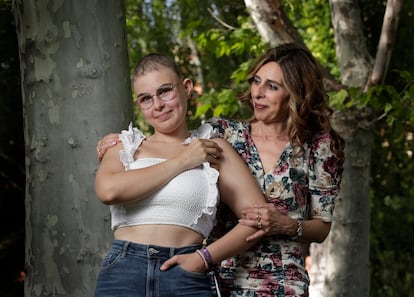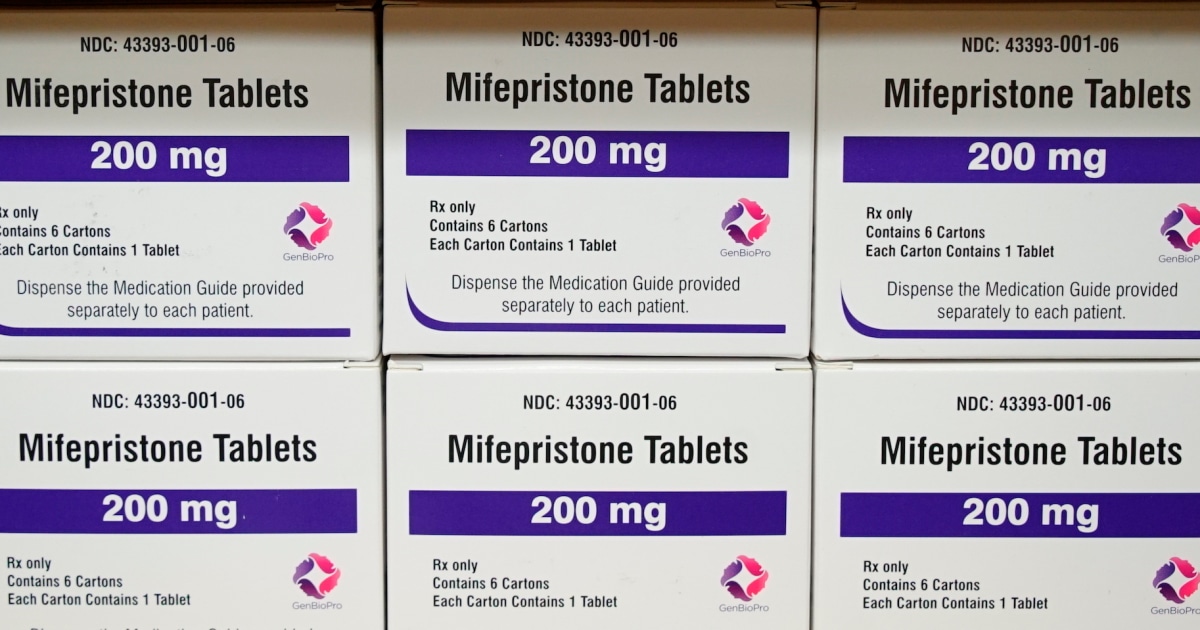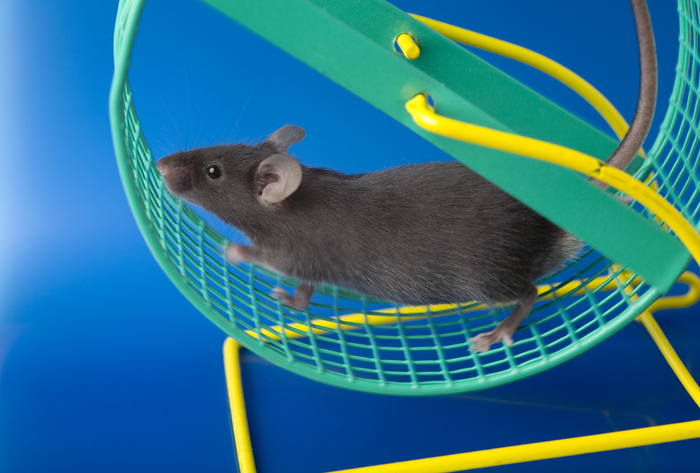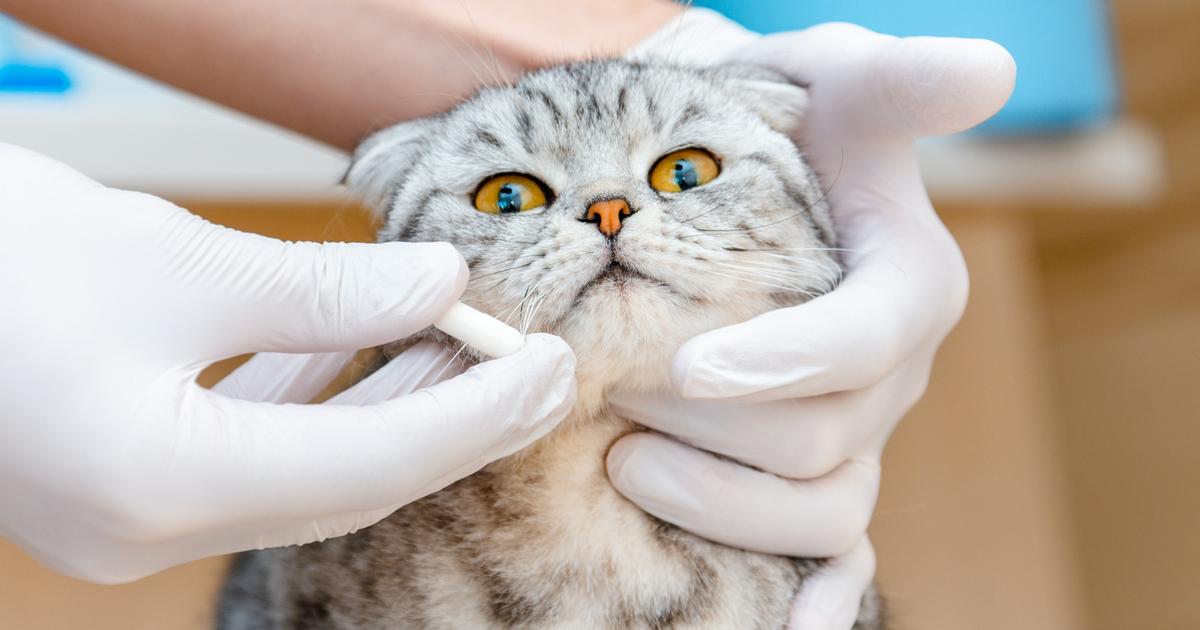The happy world of an 11-year-old girl began to crumble one day in the summer of 2015. María Guaita's hair began to fall out suddenly, as if it were a crazy nightmare or a horror movie.
With no specific treatment available, her doctors decided to give her corticosteroids, drugs that caused her to gain 20 kilos.
Suddenly, the girl was hairless and overweight, a very difficult metamorphosis to digest in the often cruel world of teenagers.
“It was a very hard blow.
Being so small, you ask yourself many things: Why me?
Why has she touched me?
The first years I had a very bad time”, recalls Guaita, who has just turned 18.
The young woman, from Cuenca, has been one of the first people to verify the revolutionary effects of a daily pill that reverses her baldness:
the baricitinib.
After seven ruthless years, he has hair back and is back to his normal weight.
María Guaita suffers from alopecia areata, an enigmatic disease in which the human body's own defenses attack the scalp.
The problem affects 2% of citizens at some point in their lives, but it is usually reduced to small bald spots the size of a coin.
In extreme cases, like Guaita's, the hair falls out completely, sometimes in just a few days.
Baricitinib achieves the opposite effect: hair grows back, as if by magic, within a few weeks.
US health authorities approved the drug on June 13.
And the European Medicines Agency recommended its authorization a month ago.
The European Commission will probably make its final decision in the next seven days, according to Stefan de Keersmaecker, a spokesman for the body.
The dermatologist Sergio Vañó, director of the Trichology Unit at the Ramón y Cajal hospital in Madrid, believes that baricitinib opens “a new era”.
The drug inhibits proteins, called JAK, which are involved in the ferocious attack on the scalp.
After the approval of baricitinib, from the American pharmaceutical firm Lilly, the authorizations of other similar medicines, such as tofacitinib, from the also American Pfizer, are expected to arrive.
"They are going to mean a revolution and a brutal improvement in the quality of life of these patients," says Vañó, who has treated the young María Guaita at the Grupo Pedro Jaén Clinic, a private center in Madrid where she also undergoes a consultation.
The young María Guaita, a patient with alopecia areata, before and after taking the drug baricitinib.
Images provided by dermatologist Sergio Vañó.
Not everything is miraculous in baricitinib, according to Vañó.
“A handicap of these treatments is that they are not curative.
You don't take this for six months and your alopecia areata is already cured.
It is a treatment that takes effect while it is used”, points out the dermatologist.
“When the patient stops taking it, the tendency is for it to get worse again.
It is a great advance, but it is not a panacea”, says the doctor.
A treatment of 34,000 euros per year
Another drawback of baricitinib is its prohibitive price.
The drug is already approved in Spain against rheumatoid arthritis and atopic dermatitis, but it costs about 940 euros per month.
And it is also not effective in all patients with alopecia areata.
The pharmacist Jesús Sierra does the math, based on the partial efficacy observed in clinical trials: if one person's hair is recovered for every three patients treated, it would take almost 34,000 euros a year to be successful in just one person.
"An adequate selection of patients who could benefit most from the treatment should be made and negotiations with the pharmaceutical company should be made to review the current price," says Sierra, from the University Hospital of Jerez de la Frontera (Cádiz).
Pharmaceutical Lilly earned about 5,000 million euros last year.
The dermatologist Sergio Vañó clarifies other possible confusions.
“The approval of the European Commission does not mean that it will already be a treatment financed in the Spanish health system.
The Ministry of Health has to assess whether it is going to finance it and in what cases.
And this process takes even one more year”, points out Vañó.
“If a patient comes to the hospital within a month, we will not be able to automatically prescribe baricitinib.
It would have to be requested individually and most likely they will say no, ”he adds.
María Guaita and her mother, Paloma Torrecilla, photographed this Monday in Los Moralejos Park, in Cuenca. Jaime Villanueva
Vañó emphasizes that alopecia areata is not simply an aesthetic problem.
“Imagine that, overnight, you don't have a single hair on your entire body.
It completely changes your image, it stigmatizes you a lot.
People ask you if you have cancer.
It changes you at a socio-labor level.
I have had patients at the Ramón y Cajal hospital, young girls with this problem, who have tried to commit suicide”, warns the dermatologist.
The most severe forms of the disease are often associated with psychiatric problems, such as anxiety and depression.
"Patients also have functional problems: by not having eyelashes, they have a higher risk of corneal erosion, they are uncomfortable doing sports because the sweat gets into their eyes and they have more infections in the nose and ears due to not have hair in those areas”, lists Vañó.
The dermatologist Joan Ferrando, honorary professor at the University of Barcelona, also stresses that baricitinib requires strict medical control.
“That people do not believe that everything is so easy.
Baricitinib has side effects: it can lower defenses, facilitate infections, activate dormant tuberculosis, and there may also be a higher incidence of lymphomas or brain infarctions,” says Ferrando.
His colleague Sergio Vañó points out that the most common side effects are mild respiratory infections, the appearance of acne and an increased risk of herpes zoster.
“It is a very safe drug.
The improvement in the quality of life and in the self-esteem of the patient when the hair is recovered compensates for the possible risk of these side effects”, says Vañó.
The head of Trichology at the Ramón y Cajal hospital estimates that 0.05% of the population may suffer from severe alopecia areata: some 25,000 people in Spain.
"I believe that the drug, due to cost issues, will be reserved for these cases," says Vañó, who predicts that the price of baricitinib will drop to about 500 euros per month.
Paloma Torrecilla, the mother of María Guaita, recalls the "ordeal" that her daughter has gone through during adolescence, with hundreds of punctures of useless drugs on her scalp, and asks that the National Health System cover the costs of baricitinib for the most severe patients.
“Maria is now beginning to feel well.
It's amazing how much a person changes from seeing her without hair to seeing her with hair.
It is a transformation”, reflects the mother.
María Guaita herself speaks with extraordinary maturity about her illness and calls on the authorities to finance drugs against alopecia areata.
“Since there are not many cases, it is a viable option.
I would ask them to try it by all means”, urges the young woman.
“And to people who are like me, I would tell them not to lose hope, that there is a way out.
Sooner or later, they're going to get out of that hole."
You can write to us at
manuel@esmateria.com
or follow
MATERIA
on
,
,
or subscribe to our
newsletter here
.















